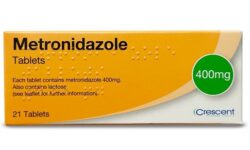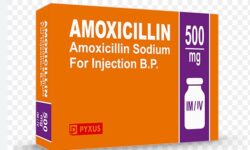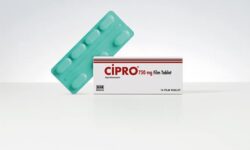Benefits of Water Softener
If you’re tired of dealing with pesky hard water problems, it might be time to consider investing in a water softener. But what exactly is a water softener? In this blog post, we will dive into the world of water softeners and explore how they work to improve your water quality. We will also discuss the impact of water softeners on your appliances’ longevity and the health benefits associated with using one. Get ready to say goodbye to mineral buildup and hello to softer, healthier water!
What Is A Water Softener?
A water softener is a device that is designed to remove minerals, such as calcium and magnesium, from the water supply. This process is known as water softening. The main purpose of a water softener is to eliminate the problems associated with hard water. Hard water is water that contains high levels of minerals, which can cause a range of issues in both residential and commercial settings.
One of the benefits of using a water softener is that it helps to prevent the buildup of scale and mineral deposits in pipes and appliances. When hard water flows through pipes, it leaves behind deposits that can lead to clogs and reduce water flow. These deposits can also accumulate in appliances such as dishwashers and water heaters, decreasing their efficiency and lifespan. By removing minerals from the water, a water softener can help to protect your plumbing system and appliances, saving you money on repairs and replacement costs in the long run.
Another benefit of water softeners is that they can improve the effectiveness of soaps and detergents. Hard water can make it difficult to create a lather and properly rinse off soap, leaving behind residue on surfaces and fabrics. By softening the water, a water softener allows soaps and detergents to work more efficiently, resulting in cleaner dishes, clothes, and surfaces. This can save you money on cleaning supplies and ensure that your laundry and dishes come out spotless.
| Benefits of Water Softener: |
|---|
| Prevents buildup of scale and mineral deposits in pipes |
| Increases lifespan and efficiency of appliances |
| Improves the effectiveness of soaps and detergents |
Additionally, using a water softener can have health benefits. Hard water has been known to cause skin irritation and dryness, as well as dry and brittle hair. By softening the water, a water softener can help to alleviate these issues and improve the overall condition of your skin and hair. This can be particularly beneficial for individuals with sensitive skin or allergies. Furthermore, soft water is less corrosive than hard water, which means it may help to protect your plumbing system and extend its lifespan.
In conclusion, a water softener is a valuable device that helps to remove minerals from water, resulting in a range of benefits including preventing scale buildup, improving appliance longevity, enhancing the effectiveness of cleaning products, and contributing to better skin and hair health. Investing in a water softener can have long-term cost savings and improve the overall quality of water in your home or business.
How Does A Water Softener Work?
A water softener is a device that is used to remove minerals, such as calcium and magnesium, from hard water. Hard water contains high levels of these minerals, which can cause various issues including scale buildup in pipes and appliances, decreased effectiveness of cleaning products, and dry skin and hair. Using a water softener can help to alleviate these problems and improve the overall quality of water in your home.
So, how does a water softener work? It operates through a process called ion exchange. Inside the water softener, there is a tank filled with resin beads. These beads are covered with sodium ions. As hard water passes through the tank, the calcium and magnesium ions in the water are attracted to the resin beads and exchange places with the sodium ions. This means that the hard minerals are removed from the water and replaced with softer sodium ions.
The ion exchange process continues until the resin beads become completely saturated with calcium and magnesium ions. At this point, the water softener enters a regeneration stage. During regeneration, a strong brine solution, consisting of water and salt, is flushed through the resin tank. The high concentration of sodium ions in the brine solution displaces the calcium and magnesium ions from the resin beads, effectively cleaning them and preparing them for further use.
- Benefits of Water Softener:
| 1. Improved Appliance Longevity: | A water softener helps to extend the lifespan of appliances that come into contact with water. By preventing scale formation, it reduces the risk of clogs and damage to pipes, heaters, washing machines, and dishwashers. |
| 2. More Effective Cleaning: | Soft water allows for better lathering of soaps and detergents, making them more effective in cleaning tasks. It also prevents the formation of soap scum and leaves surfaces looking cleaner and shinier. |
| 3. Health Benefits: | Using a water softener can have positive impacts on skin and hair health. Soft water is gentler on the skin, reducing dryness and irritation. It also helps to prevent mineral buildup on hair, leaving it soft and manageable. |
Improved Appliance Longevity With Water Softeners
Water softeners play a crucial role in improving the longevity of household appliances. Hard water contains high levels of minerals, such as calcium and magnesium, which can be detrimental to various appliances. These minerals can accumulate and form limescale, which can clog pipes, reduce water flow, and damage appliances over time. By using a water softener, homeowners can prevent the negative effects of hard water and prolong the lifespan of their appliances.
One of the main benefits of using a water softener is the prevention of limescale buildup. Limescale deposits can form inside appliances like washing machines, dishwashers, and coffee makers, causing them to become less efficient and require more frequent repairs. The sodium ions in the water softener exchange with the calcium and magnesium ions, effectively neutralizing the hardness of the water and preventing limescale formation. This helps appliances to function optimally and reduces the frequency of breakdowns or replacements.
Another way water softeners contribute to improved appliance longevity is by reducing the strain on internal components. Hard water can cause a buildup of mineral deposits in appliances, including heating elements and pipes. This buildup not only restricts the flow of water but also affects the efficiency and performance of the appliance. Water softeners eliminate the need for excessive cleaning and descaling of appliances, as soft water does not contain the minerals that cause such deposits. As a result, appliances can operate smoothly and have a longer lifespan.
| Appliance | Improved Longevity with Water Softeners |
|---|---|
| Washing Machine | Soft water prevents limescale from accumulating in the machine, reducing the risk of clogged pipes and minimizing wear and tear on the internal components. |
| Dishwasher | Water softeners help to maintain the efficiency of the dishwasher by preventing limescale buildup on heating elements and spray nozzles, resulting in a longer lifespan for the appliance. |
| Coffee Maker | Using a water softener can prevent the formation of limescale in the coffee maker, which can affect the taste of coffee and the performance of the appliance. Soft water ensures a longer lifespan for the coffee maker. |
In addition to protecting appliances, water softeners also have environmental benefits. When appliances function efficiently and last longer, it reduces the need for replacements, resulting in less waste. Moreover, soft water requires less detergent and soaps to achieve the same cleaning effects, leading to reduced chemical usage and less pollution in the environment. By investing in a water softener, homeowners not only save money on appliance repairs and replacements but also contribute to a more sustainable future.
Health Benefits Of Using A Water Softener
A water softener is a device that removes the minerals, such as calcium and magnesium, from your home’s water supply through a process called ion exchange. This process not only produces water that feels soft to the touch, but it also offers a range of health benefits that can improve your overall well-being.
One of the key benefits of using a water softener is the positive impact it can have on your skin. Hard water, which is high in mineral content, can leave a residue on your skin that can cause dryness and irritation. By removing these minerals, a water softener can help to alleviate these skin issues and leave your skin feeling softer and smoother.
| Improved Skin Hydration: | A water softener can enhance skin hydration by reducing the minerals that can lead to dry and itchy skin. By using softer water, you can maintain healthier and more moisturized skin. |
|---|---|
| Relief from Eczema and Dermatitis: | For individuals who suffer from eczema and dermatitis, using a water softener can provide much-needed relief. The absence of mineral buildup on the skin can help to reduce irritation and flare-ups. |
| Improved Hair Condition: | Similar to the effects on the skin, hard water can also have a negative impact on your hair. It can make your hair dull, dry, and brittle. By using a water softener, you can enjoy softer, shinier, and more manageable hair. |
Additionally, using a water softener can also benefit your household appliances. The minerals found in hard water can cause limescale buildup in appliances such as washing machines, dishwashers, and even coffee makers. This buildup can reduce the lifespan and efficiency of these appliances. By removing these minerals with a water softener, you can prolong the lifespan of your appliances and reduce the need for repairs or replacements.
Furthermore, a water softener can also bring cost savings. Appliances that are exposed to hard water are known to consume more energy than those using softened water. By using a water softener, you can improve the efficiency of your appliances, resulting in lower energy bills and reduced maintenance costs.
In conclusion, the health benefits of using a water softener are significant. Not only does it improve the condition of your skin and hair, but it also extends the lifespan of your appliances and saves you money in the long run. By investing in a water softener, you can enjoy the many advantages it offers and provide a healthier living environment for you and your family.
Frequently Asked Questions
1. What is a water softener?
A water softener is a device or system used to remove minerals and impurities, such as calcium and magnesium, from hard water, making it soft and more suitable for various household purposes.
2. How does a water softener work?
A water softener typically uses ion exchange technology to remove minerals from hard water. It contains resin beads that attract and trap calcium and magnesium ions, replacing them with sodium ions. This process helps soften the water, making it less likely to cause mineral buildup and damage appliances and plumbing.
3. How can a water softener improve appliance longevity?
By removing minerals from hard water, a water softener can prevent the accumulation of limescale and mineral deposits in appliances such as dishwashers, washing machines, and water heaters. These deposits can damage the internal components of the appliances, leading to reduced lifespan and efficiency. Softened water can help appliances function optimally and extend their longevity.
4. What are the health benefits of using a water softener?
Using a water softener can have several health benefits. Softened water is gentler on the skin and can help alleviate skin conditions like dryness and eczema. It also helps improve the lathering and rinsing of soaps and shampoos, making them more effective. Moreover, softened water reduces mineral buildup in pipes, ensuring better water flow and preventing potential contamination.
5. How often should a water softener be maintained?
The frequency of maintenance for a water softener depends on various factors such as water hardness, water usage, and the type of system. Generally, it is recommended to check and replenish the salt levels in the softener regularly and clean or replace the resin beads every three to five years. It is advisable to consult the manufacturer’s guidelines or a professional for specific maintenance requirements.
6. Can a water softener be installed by oneself?
While it is possible to install a water softener as a DIY project, it is recommended to seek professional help, especially for complex systems. Professional installation ensures proper sizing, plumbing connections, and optimal placement of the softener. Moreover, professionals can assess the specific requirements of your household and provide customized solutions for the best results.
7. Are water softeners environmentally friendly?
Water softeners do consume salt and water during the regeneration process, which can have environmental impacts. However, modern water softeners are becoming more eco-friendly with advanced regeneration systems, efficient water usage, and the use of alternative softening methods like potassium chloride. It is important to choose a water softener with eco-friendly features and consider water-saving practices to minimize any potential environmental impact.



